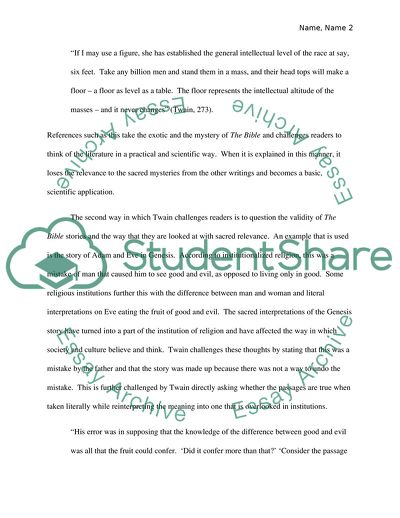Challenging the Institution of Religion with the Satire of Mark Twain Essay Example | Topics and Well Written Essays - 1500 words. https://studentshare.org/literature/1744068-mark-twain-satire
Challenging the Institution of Religion With the Satire of Mark Twain Essay Example | Topics and Well Written Essays - 1500 Words. https://studentshare.org/literature/1744068-mark-twain-satire.


